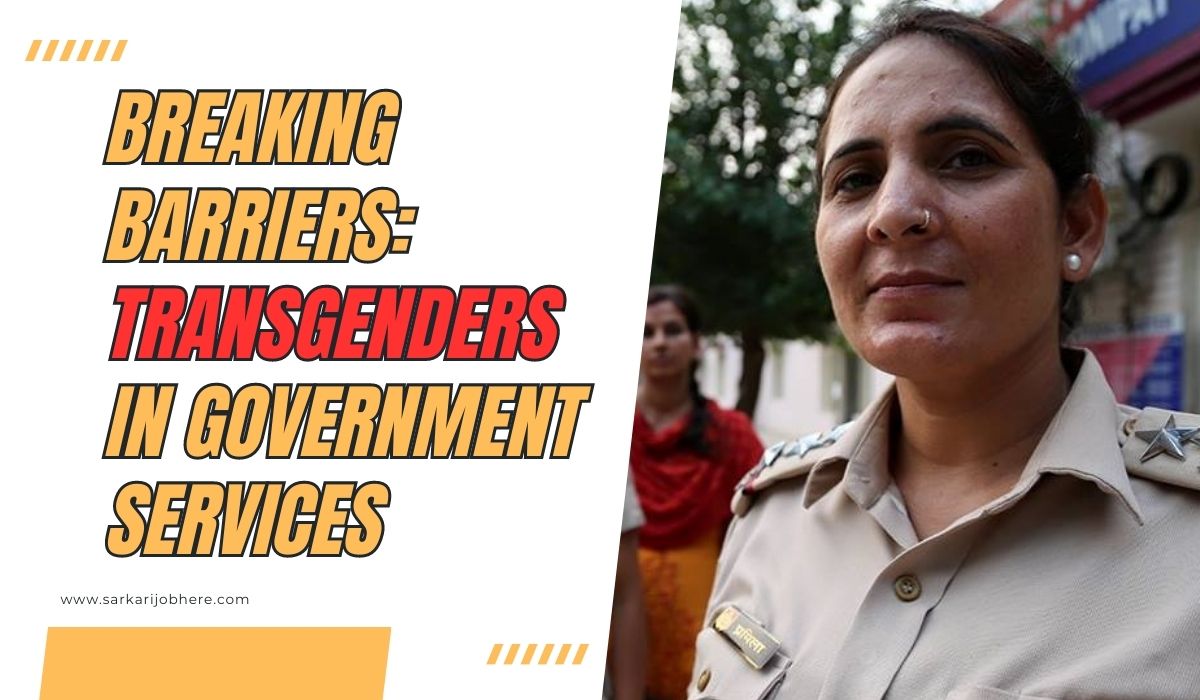Table of Contents
- Introduction
- Understanding Transgender Inclusion
- The Journey of Transgender Empowerment
- Historical Perspectives
- Challenges and Discrimination
- Legal Reforms for Inclusivity
- Transgender Representation in Government Services
- State of Bihar: A Leading Example
- Efforts and Initiatives
- Overcoming Socio-economic Barriers
- Education and Skill Development
- Employment Opportunities
- Entrepreneurship and Self-Employment
- Sensitization and Awareness Programs
- Inclusive Work Environment
- Success Stories of Transgender Government Employees
- Inspiring Tales of Triumph
- Shattering Stereotypes
- Public Perception and Acceptance
- Changing Mindsets
- Advocacy for Equal Rights
- Policy Recommendations for Further Progress
- Conclusion
- FAQs
Introduction

In recent years, the issue of transgender inclusion and empowerment has gained significant attention worldwide. Transgender individuals face numerous challenges, particularly in accessing education and employment opportunities. However, there have been positive developments towards breaking down barriers, especially in Government services. This article explores the progress and challenges faced by transgender individuals in government services, with a specific focus on the state of Bihar.
Understanding Transgender Inclusion
Transgender inclusion is about recognizing the rights and dignity of transgender individuals, ensuring they have equal opportunities to participate in all aspects of society. This includes the right to education, healthcare, employment, and representation in various sectors, including government services.
The Journey of Transgender Empowerment
Historical Perspectives
Historically, transgender individuals have faced marginalization and discrimination in many societies. They have been denied access to education, employment, and healthcare, leading to socio-economic vulnerabilities.
Challenges and Discrimination
Transgender individuals encounter discrimination in various forms, including social stigma, exclusion, and violence. This discrimination has limited their access to opportunities and resources.
Legal Reforms for Inclusivity
To address the challenges faced by transgender individuals, many countries have taken progressive steps to enact laws and policies that protect their rights and promote inclusivity. These legal reforms have paved the way for greater empowerment.
Transgender Representation in Government Services
One notable area of progress is the increasing representation of transgender individuals in government services.
State of Bihar: A Leading Example
The state of Bihar stands out as a leading example of transgender inclusion in government services. It has taken significant steps to promote diversity and inclusivity in the workplace.
Efforts and Initiatives
The government of Bihar has implemented various initiatives to encourage the employment of transgender individuals in different government departments. These efforts have helped many transgender people secure stable jobs and economic independence.
Overcoming Socio-economic Barriers
Education and Skill Development
Education plays a crucial role in empowering transgender individuals. Efforts to promote transgender education and skill development have had a positive impact on their employability.
Employment Opportunities
Creating inclusive employment opportunities is essential to break the cycle of poverty and exclusion that many transgender individuals face.
Entrepreneurship and Self-Employment
Encouraging entrepreneurship and self-employment among transgender individuals can foster economic independence and reduce dependence on traditional job markets.
Sensitization and Awareness Programs
Promoting awareness and sensitization about transgender issues is crucial in creating a more inclusive society. Such programs help reduce prejudice and promote acceptance.
Inclusive Work Environment
Government departments must create a safe and supportive work environment for transgender employees. Inclusivity training and policies are essential to ensure a positive workplace atmosphere.
Success Stories of Transgender Government Employees
Inspiring Tales of Triumph
Several transgender individuals working in government services have achieved remarkable success, breaking stereotypes and inspiring others.
Shattering Stereotypes
These success stories challenge preconceived notions and demonstrate the potential of transgender individuals in various roles.
Public Perception and Acceptance
Changing Mindsets
Changing societal mindsets is crucial in removing the barriers that transgender individuals face in accessing opportunities.
Advocacy for Equal Rights
Advocacy groups and activists play a vital role in advocating for equal rights and opportunities for transgender individuals.
Policy Recommendations for Further Progress
To further promote transgender inclusion in government services, several policy recommendations can be considered. These include targeted recruitment drives, mentorship programs, and continuous evaluation of inclusivity measures.
Conclusion
The journey towards transgender inclusion in government services has made significant strides, especially in the state of Bihar. Efforts to break down barriers, promote education and employment, and create inclusive work environments have contributed to positive change. However, there is still much work to be done to achieve full equality and empowerment for transgender individuals. By collectively advocating for inclusivity and challenging stereotypes, we can build a more just and accepting society.
FAQs
- Are there any other states in India that have made progress in transgender inclusion? Yes, some other states have also made efforts towards transgender inclusion, but Bihar stands out as a leading example.
- How can the private sector contribute to transgender empowerment? The private sector can support transgender empowerment through inclusive hiring policies and awareness campaigns.
- What challenges do transgender individuals face in accessing education? Transgender individuals often face discrimination, bullying, and lack of acceptance in educational institutions.
- How can society support transgender individuals in their journey to economic independence? Society can support transgender individuals by offering job opportunities, mentorship, and advocacy for their rights.
- What role can schools and colleges play in promoting transgender inclusivity? Schools and colleges can implement sensitization programs, establish support groups, and create a safe environment for transgender students.
